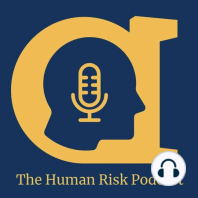1 min listen
'Behind The Spine' with Mark Heywood
ratings:
Length:
29 minutes
Released:
Apr 14, 2020
Format:
Podcast episode
Description
This episode of the Human Risk podcast isn't really an episode of the Human Risk podcast. It's the very first episode of a new podcast called "Behind The Spine". But it is about Human Risk. Mark Heywood, who featured on episode 19 of the Human Risk podcast, is the host of a show targeted at writers and helps them find learning opportunities in the most unlikely of places.One of the main ways we make sense of the world around us is through stories. Whether that’s children’s fairytales that help shape our perspective on the world or the stories we tell ourselves and others to justify the decisions we make. We’re not short of examples of politicians and others using creative storytelling to justify their actions.So if we can better understand stories, we can better understand behaviour. On this first episode, you'll be able to hear a familiar voice talking about Human Risk.For more on Behind The Spine, visit the podcast website: https://bit.ly/2XB9as5.You can subscribe to Behind The Spine on all the usual podcast platforms.
Released:
Apr 14, 2020
Format:
Podcast episode
Titles in the series (100)
Preview: The Human Risk Podcast: Coming soon is The Human Risk podcast, looking at how Behavioural Science can help manage the biggest risk facing most organisations: people! by The Human Risk Podcast
